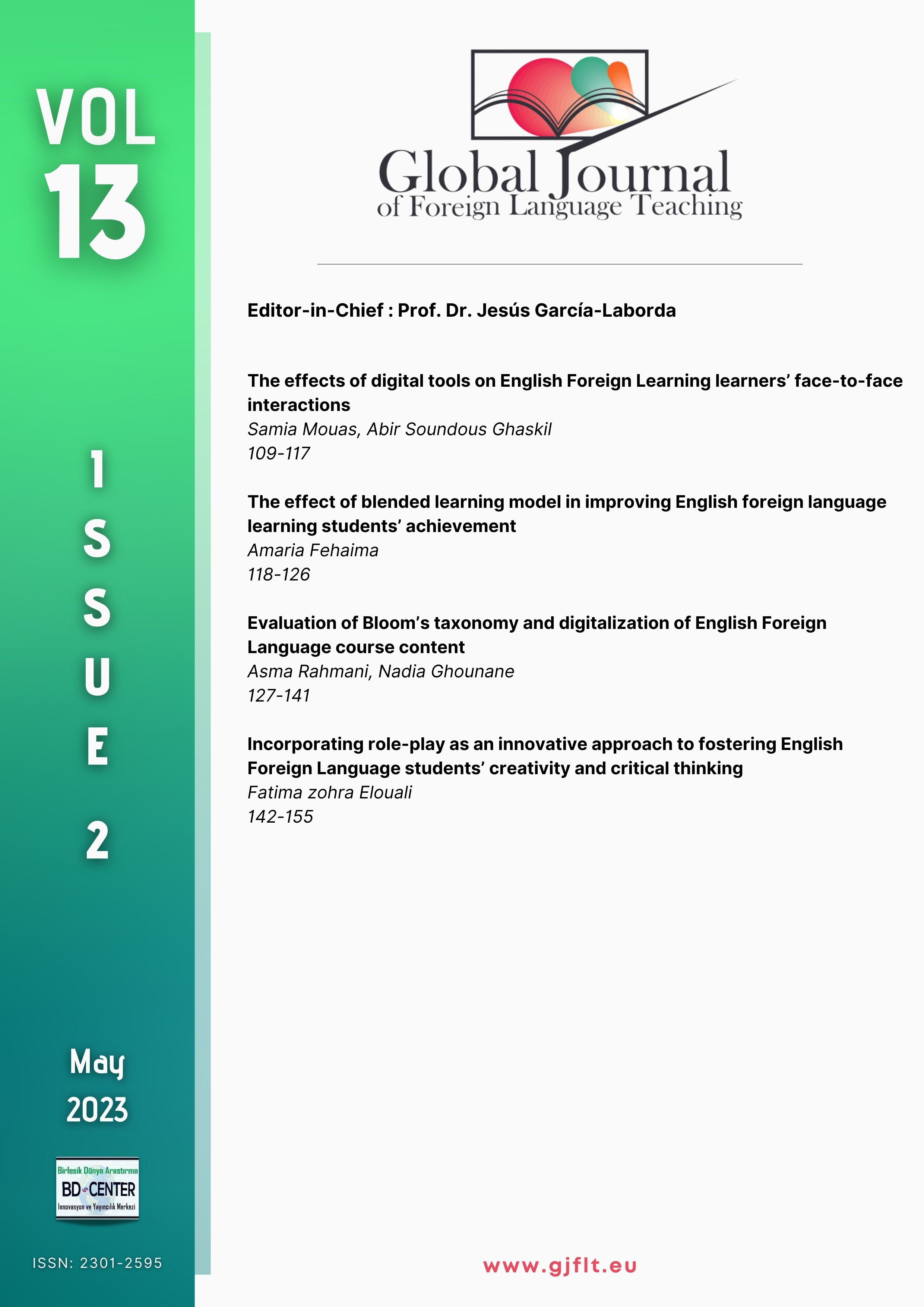The effects of digital tools on English Foreign Learning learners’ face-to-face interactions
Main Article Content
Abstract
Presently, technological innovations have altered every facet of our everyday life, particularly those associated with the humanities. The development of new communication devices has transformed the nature of contact from interpersonal to computer-mediated. This study aims to contribute to the debate about the different effects of digital tools on in-person interaction. This study investigates the effects of modern digital communication technology outlets on English as a foreign language (EFL) learners’ face-to-face interaction. The researchers opted for a questionnaire and field observation to collect the necessary data to be analyzed. One hundred (100) participants answered the questionnaire. The study found that the abusive use of digital tools has a critical impact on face-to-face interactions and that it affected the human ties between EFL learners, and also their relationships with their families and friends. The outcomes of this investigation allow us to conclude that the constant use of digital outlets can negatively affect face-to-face interactions.
Keywords: Digital tools; EFL learners; interactions; technology.
Downloads
Article Details

This work is licensed under a Creative Commons Attribution-NonCommercial-NoDerivatives 4.0 International License.
Authors who publish with this journal agree to the following terms:- Authors retain copyright and grant the journal right of first publication with the work simultaneously licensed under a Creative Commons Attribution License that allows others to share the work with an acknowledgement of the work's authorship and initial publication in this journal.
- Authors are able to enter into separate, additional contractual arrangements for the non-exclusive distribution of the journal's published version of the work (e.g., post it to an institutional repository or publish it in a book), with an acknowledgement of its initial publication in this journal.
- Authors are permitted and encouraged to post their work online (e.g., in institutional repositories or on their website) prior to and during the submission process, as it can lead to productive exchanges, as well as earlier and greater citation of published work (SeeThe Effect of Open Access).
